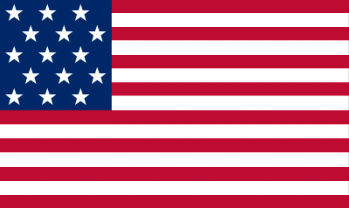We have all heard of Black Friday. I’m sure you have seen advertisements exhibiting “Black Friday Deals,” but what is the excitement about it? Black Friday always falls on the Friday following Thanksgiving Thursday; this year, it is November 29th. It is frequently considered “The Biggest Shopping Day” of the year as thousands of shoppers rush to stores or order online items marked down for one day.
The origin of Black Friday is a little unclear. The original story tied to Black Friday tells us the panic that ensued after the crash of the gold market on September 24, 1869. This story focuses more on the name and less on consumerism. Some stories say it comes from the early 1960s when Philadelphia police officers started using the phrase “Black Friday” to describe the rush and traffic of people hurriedly starting their holiday shopping on the day after Thanksgiving. Other stories attribute it to retailers, stating that after a year of a selling loss, sales skyrocketed after Thanksgiving Day. Both stories draw the same picture, people rushing to stores and blowing their money.
But is Black Friday all bad? Black Friday shopping has a lot of drawbacks besides long lines and crowds. Working hand in hand with Cyber Monday, Black Friday consumerism has a huge environmental effect. A 2019 study found that 80% of items purchased on Black Friday are wasted or discarded after minimal use. You can probably imagine the impact that can have on our planet. The fashion industry and consumer activity already severely affect the environment. Still, with so many transactions and manufacturing occurring in one day, more greenhouse emissions are created and more waste is formed. Besides the planet-wide impact, it also has a social impact. Those in the packaging, delivery, or shipping workplace face distress. Rarely do they benefit from Black Friday, often facing long, stressful work, up to 12-16 hours a day. Not only is it bad for the environment and workers, but Black Friday can hurt you too. Another aspect of the so-called “holiday” is the fake deals and scams. Often companies and brands use fake markdowns. The label 50% off is likely a false promotion, used to lure customers into believing that they are saving money. Online scams and phishing also seem to be common as Black Friday is the golden opportunity for frauds to sell you non-existent products. Known as the “fake-delivery” or “fake-package” scam, this is another typical swindle. You may receive a text or message telling you that a package that you never ordered with links leads to a fraudulent website or transaction. Many of these websites or scammers aim to attain your personal or financial information. Another way online sellers can get you to buy more is by using something called “Fast Deals.” An example of this is Amazon’s “lightning deals” where you are given a fake markdown on an item but only for a restricted amount of time. This method creates an urgent need to buy this item, making it even more likely to buy something you will not need or use. Just be careful and pay attention to what you are clicking on or purchasing.
Instead of purchasing from the packed day of retail, you can participate in many other options, like consuming mindfully and thinking about what you are doing before you click the purchase button or swipe the credit card. You can also get involved with social enterprises such as Giving Tuesday or Buy-Nothing Day, a simple day that focuses on watchful consumerism and promotes sustainable shopping. Speaking of which, sustainable brands are a great alternative to fast fashion and consumerism. November is the month of gratefulness and giving thanks, so why not thank the earth by purchasing something coming from a sustainable place? Brands to consider for this could be Patagonia, a popular outdoor gear brand, and TenTree, which plants a tree for every purchase. Another shopping path which seems to be gaining popularity is second-hand shopping, or thrifting. Head to a local thrift store and look through the racks of goods and items. Luckily, we have quite a few thrift stores in Appleton such as AbleLight, Goodwill, Bargain Garden, and St. Vincent de Paul, just to name a few. With a little patience and a pair of earbuds, you can often find great bargains and items.
Black Friday is a popular shopping date, closely following Thanksgiving, that encourages consumers to overspend and purchase unwanted items. Often negatively affecting the environment and company employees, not to mention the dangers of scams and phishing schemes. This year, we hope you can watch out for marketing tactics and maybe try another shopping style in this month of giving.







